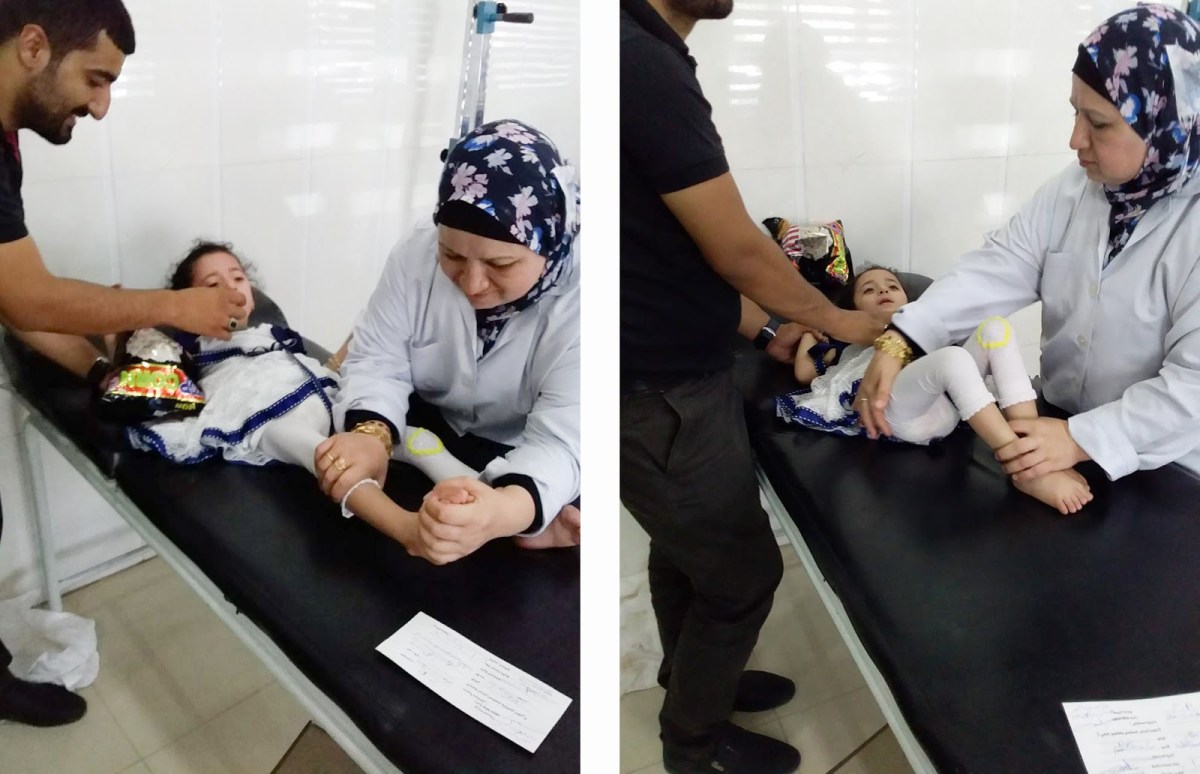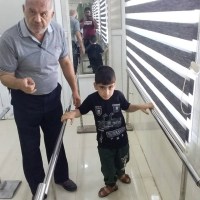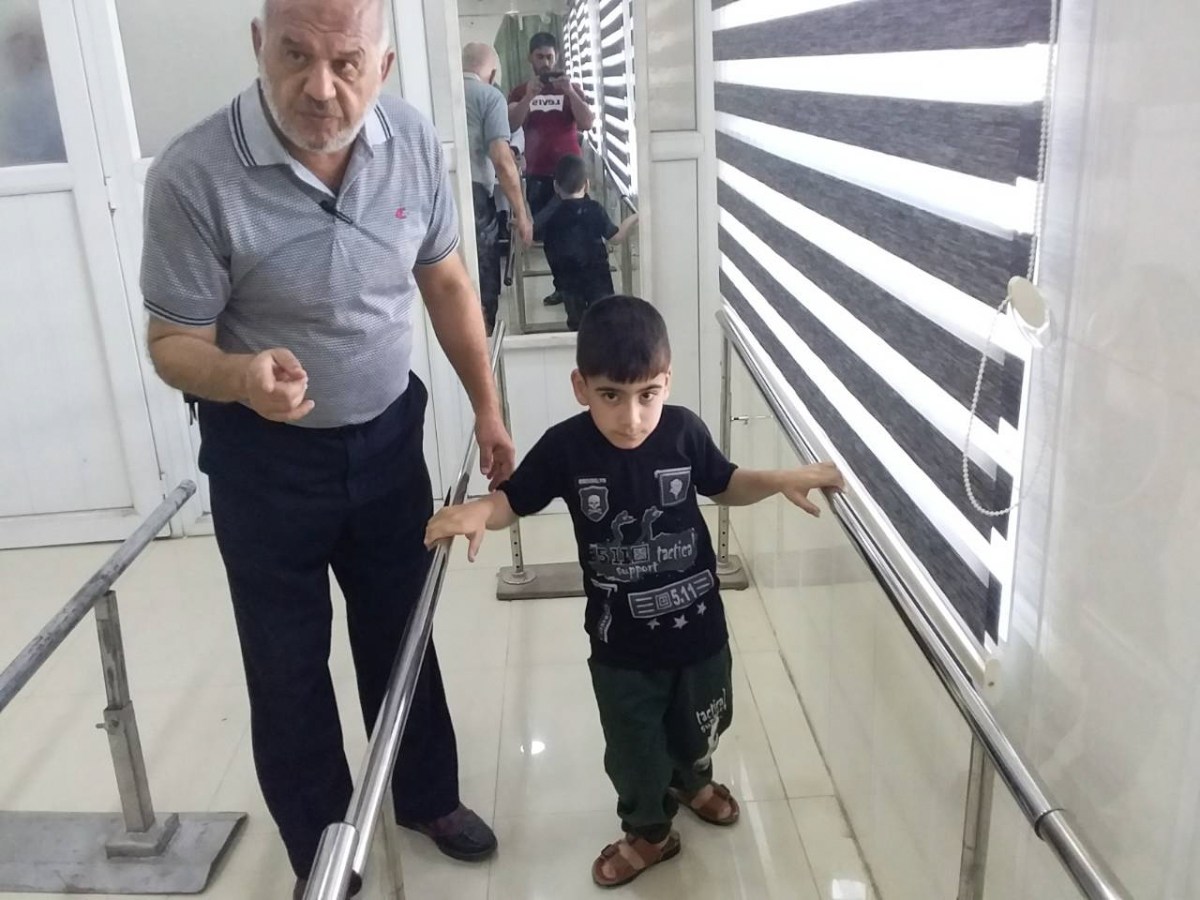Each morning in Mosul, a collection of the city’s bravest residents and their families gather together. They steel themselves ahead of time, knowing what’s ahead will be difficult, but worth it. They put their trust in the doctor and physical therapists present.
Here in this room, after a lot of hard work, some incredible boys and girls, men and women, will do the unthinkable.
They’ll walk.
In July, we introduced you to the first part of a project created to help residents of Mosul with disabilities and mobility issues live with more dignity. Mosul is a tough place to live for residents with mobility difficulties. Civic infrastructure isn’t yet designed to make the city accessible for all. Three years under ISIS occupation, where residents with disabilities were seen as an unwanted burden, made life even more difficult.
Today, the city is still heavily damaged, both by the occupation and the war to liberate Mosul—making it even harder for residents with disabilities to leave the relative comfort and safety of home.
We believe the city of Mosul is for all of its residents, not just its most mobile.

Doctors at our primary health centers in Mosul identified a number of patients who needed a few basic interventions to dramatically improve their quality of life. We sent teams to do home visits, to better understand patient needs.

Some patients were prescribed equipment and supplies. You stepped in and provided exactly what each patient needed: size appropriate wheelchairs, medicine, and toileting aids. Delivery day was a celebration!
Some patients were prescribed physical therapy in order to improve their ability to move, and increase their independence. You are providing this right now.
You cover the cost of special transportation to get patients and their parents to the physical therapy center in east Mosul and back home again—there isn’t a single accessible center on the more heavily damaged western side of Mosul.
You cover the cost of the doctor, who meets with each patient and sets out a treatment plan. And you cover the cost of the physical therapists, who meet with each patient regularly, implement treatments and track each patient’s progress.

Physical therapy sessions are not easy. The youngest patients are often afraid of the equipment, and therapy is painful for most everyone. Atrophied muscles are worked, tendons and ligaments stretched, awkward movements are repeated over and over until the body develops fluidity.
There are tears on the most painful days, and happy celebrations as milestones are reached. Parents cheer on their kids through it all, providing the extra strength their children sometimes need to keep going.
We are helping some of Mosul’s most vulnerable residents step more easily into their future with courage. There are exciting plans ahead for older patients in the program—check back to hear more about opportunities you are creating for Mosul’s young adults with mobility issues.


